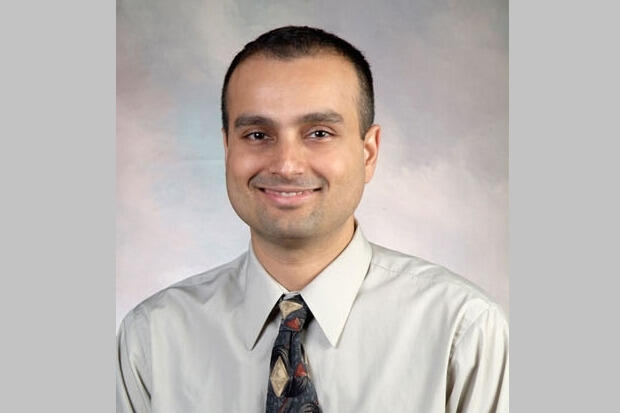
July 6, 2016
Professor’s research demonstrates link between gut bacteria and brain inflammation in chronic liver disease
Share this story
Jasmohan Bajaj, M.D., associate professor at Virginia Commonwealth University, had findings from his research on gut bacteria in cirrhosis published recently in the journals Hepatology and Scientific Reports.
The findings conclude that gut bacteria, found in the intestinal tract and stool, are associated with brain inflammation in cirrhotic patients and animals known as hepatic encephalopathy (HE). HE can lead to fatigue, the inability to concentrate, mental confusion and death.
“HE is an epidemic in patients with liver disease and cirrhosis,” said Bajaj, associate professor in the Department of Gastroenterology, Hepatology and Nutrition in the VCU School of Medicine. “Bacteria can result in inflammation in the systemic circulation, which in turn could inflame the brain.”
His research published in Hepatology involved the study of germ-free and conventionally raised mice with cirrhosis. The researched shows that gut microbes are essential for brain inflammation in cirrhotic mice. The human study published in Scientific Reports shows that specific bacteria were associated with nerve cell or neuron damage, while others were associated with damage to supporting cells or astrocytes.
Further investigation must include HE treatment that targets particular gut bacterial populations and specific affected brain region that might be affected as a result, said Bajaj, who practices at both VCU Health and the McGuire VA Medical Center.
Despite treatment for HE using the current standard of care, patients still experience the progression to overt HE and residual brain damage, Bajaj said. Consequently, further treatment options must be researched and made available to patients, Bajaj said.
To that end, Bajaj and the McGuire VAMC are performing fecal microbial transplants in HE patients. This process is the transfer of stool from a healthy donor into the gastrointestinal tract of someone with HE, for the purpose of treatment.
Patients who were part of Bajaj’s study were examined within the last two years. Mice were also used as study subjects during the last year of research.
Subscribe for free to the weekly VCU News email newsletter at http://newsletter.news.vcu.edu/ and receive a selection of stories, videos, photos, news clips and event listings in your inbox every Thursday.
Subscribe to VCU News
Subscribe to VCU News at newsletter.vcu.edu and receive a selection of stories, videos, photos, news clips and event listings in your inbox.












